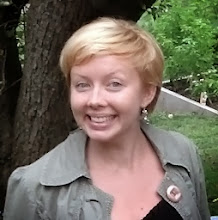
For Thanksgiving 2007, a group of fellow volunteers gathered my regional capital, Sokode, in order to celebrate with a traditional American feast. My duty was to secure and cook the turkey. Turkeys were brought to West Africa from the Americas and they have continued raising them alongside chickens, guinea fowl, and ducks. So finding one wouldn't be too much trouble.
I asked a friend in my village to help me acquire a turkey. He asked me how big I would like it to be. I said that I wanted the fattest one he could find. He certainly provided... It was an old bird, male, and weighed at least 10 pounds. He cost 15,000 francs CFA or 33 U.S. dollars.
I traveled 80 kilometers from my village to the regional capital with the turkey tucked away under the backseat of the 'bush' taxi. At the volunteers' shared transit-house in Sokode, the guard helped me to slit the bird's throat as my fellow volunteers looked on. The Togolese guard, with years more experience butchering fowl than myself, quickly de-feathered and disembowled the bird. To show my appreciation for his help, I offered him the turkey butt, which is highly prized here.
This was not the first bird that I had to slaughter and cook during my time in Togo. Therefore, I knew that his meat would be tougher than the fattened birds found in America, as flocks are usually left to roam across the village in order to find food. To tenderize the meat, I decided to soak the bird overnight in a brine flavored with some local herbs.
On Turkey Day—as the bird continued soaking—my first task was to collect 10 liters of peanut oil in order to deep fry the turkey. So I walked 2 kilometers to visit the largest market in the center of the city with 2 empty water bottles. After filling up, I headed back to house, emptied the bottles, and went out again to refill. At a smaller market closer to the house, I visited the same vendor twice in order to obtain all the oil that I needed. She seemed a little perplexed at seeing me the second time and then tried to charge me more per bottle—as though I was crazy and had forgotton her first price.
After elaborate preparations, the bird turned out wonderfully and was complemented by all the traditional American dishes at our feast: mashed potatoes, gravy, cranberry sauce, stuffing, green beans, beets, salad ... All served with some local bissap juice—just to remind us where we were. Many of these dishes were an exceptional treat as many of the items are somewhat pricey based on our pay-rate and can only be found in the larger cities of Togo. Further, butchering a bird is a consuming task—so I indulge rarely.
Able to fill our bellies with more familiar foods, it was nice to spend the holdays with some of my co-patriots.










